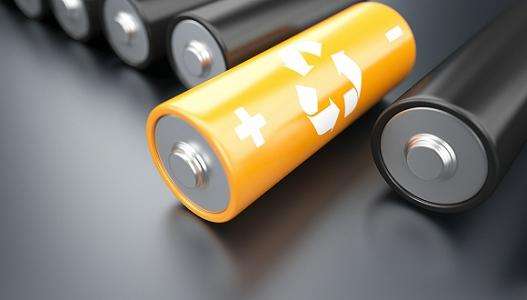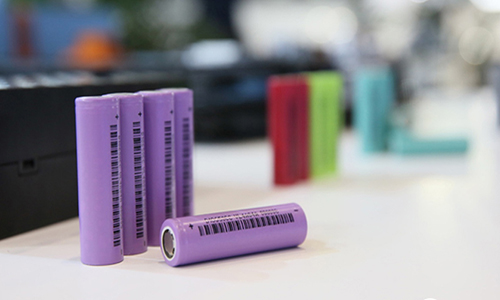Lithium-Ion Battery Replacement Cost – Cost and Technology
May 07, 2022 Pageview:1626
There has been a significant development in the world of batteries. And one of the best technologies today is lithium-ion. These batteries are leading the industry both in performance and durability.
Compared to other chemistries, it is much better to have one li-ion battery than two Ni-Cad batteries. And this is why these batteries are so popular across the globe. Even gadgets that used other batteries before are using lithium-ion today.
Because of this, you can expect Li-ion batteries to cost more than any other technology. And as more improvements are made, so do their prices rise. Luckily, they are more available.
Despite their strength and power, Li-ion batteries do not last forever. Like any other battery, it comes a time when they are no longer useful.
What should you do then? Replacement is your best option. When the battery loses its capacity, you need to get another with to deliver the performance you need.
Lithium-ion Replacement Cells
Lithium batteries are, without a doubt, very popular. They power a wide range of digital devices used in homes and other places.
Most battery packs made of lithium cells are fixed by replacing the cells. There are many places where you can buy batteries. However, take care that you are:
Buying the right cells. Different devices require different cells. It's wrong to assume that buying just any battery on the market will give you the service you need. Check the old battery when buying a replacement.
Buying from a trustworthy supplier. There are so many sellers of li-ion batteries, especially on the internet. Understand that not all of them are genuine. Buying a genuine battery will save you a lot of trouble when it comes to performance.
Your digital device should tell you the type of battery you need. With so many options out there, specifications matter a lot.
When buying replacement cells, ensure they are the latest models. As stated above, constant improvements are being made to give these batteries a performance boost.
Another important factor to keep in mind is the price of these batteries. Luckily, the current market surge has caused a significant reduction in the price of the cells. It should, therefore, not be hard finding the right replacement.
Lithium Battery Replacement Cost
Lithium-ion batteries are popular with many modern devices. Now the replacement cost varies depending on the specifications of the battery and the device they power.
Let us look at some of the most popular uses and how much replacements may cost.
EV Battery Replacement
Electric vehicles are becoming more and more popular in the world. However, one of the concerns shoppers have is how long it takes before they can replace the battery. Perhaps you already know that batteries are the most expensive components of these cars. Hence, it makes sense that you want to know how long it will work and the cost of replacing it.
Generally, batteries degrade due to the "calendar effect." This is the baseline of decline over time.
So, how much does it cost to replace an EV li-ion battery? It ranges from 0$ to $20,000 based on different factors. If a battery dies within the manufacturer's warranty, within 8 years, or 10,000 miles, the replacement should not cost you anything. But it must be within the warranty terms.
Battery replacements for EVs are still rare today. So, there is not much data on it. Also, there is a constant decline in the price of lithium-ion batteries. That means that costs today may not be the same in the next five years.
Battery Replacement for Other Devices
The world is facing a lithium-ion battery crisis. There are so many manufacturers and batteries in the market that the price has plummeted significantly.
Because of this, finding li-ion battery replacement is much easier than it was years ago. The better news is that the replacement today may be much lower than when you first bought the gadget.

Replacement batteries for smartphones and similar gadgets are in plenty. You just need to look in the right place and pick a battery designed for your device.
Consider that we have different categories of lithium-ion batteries. The latest versions come with lithium polymer material, which makes them offer better performance overall.
Concerning other gadgets, follow the same advice offered above. You need to get the latest technology. That's the only way to get any real value for your investment.
Batteries have a shelf-life. When buying replacements, avoid those that have been on the shelf for too long. Consider buying a battery according to the year it was manufactured. Avoid anything that has been around for more than a year.
Lithium-ion Battery Replacement Technology
New generation lithium-ion batteries use a movement of lithium ions from the positive to the negative electrode for energy storage and release. The place reverses when the battery is charging – all through an electrolyte.
The positive electrode is the initial source of lithium. On the other hand, the negative electrode is the host for lithium. Several technologies have been used over the year to improve the performance of these batteries.
The best replacement and substitute technologies for li-ion are:
Lithium-Sulfur
Unlike Li-ion batteries which have active materials as stable hosts during a cycle, lithium-sulfur (Li-S) batteries don't have a host structure. That is why they are assumed to carry a higher energy density. Some say they are four times better than Li-ion batteries. Hence, they are more applicable in aviation and space markets.
Solid-State Batteries
Again we shall compare this to li-ion batteries. Ions in li-ion batteries move from one electrode to another to complete a cycle across a liquid electrolyte. In solid-state batteries, the liquid electrolyte is replaced by a solid component. Lithium ions still move through it, only that it's more stable. Their biggest advantage is, therefore, safety.
These new technologies seem to be taking more ground today. It's hard to imagine how much development will be achieved in the next few years. We can expect to have better replacement technologies.

lithium-ion battery Repair Service – Introduction, Fixing, and Rebuilding
Today's world needs more power, mostly in terms of clean and renewable energy. Lithium-ion batteries are currently in the lead for energy storage strategies. This cutting-edge technology is what the world has been waiting on.
However, lithium-ion batteries have the same weakness as any other batteries. They deteriorate and die with time. Also, they are vulnerable to physical, electrical, and chemical damage.
It's important to know what to do when your battery is damaged or has an issue. Luckily, few repair services can take care of faulty batteries. We are saying a few because lithium-ion batteries are more complex than other chemistries. Any wrong action and the battery can explode to cause a fire.
In this guide, we will be expounding on li-ion battery repair services. We will also be discussing whether repairing the batteries is a good idea. Keep reading.
Can lithium-ion batteries Be Fixed?
Before we answer this question, let's start with battery basics. What many people call a battery is actually a cell. A battery pack is made of several cells, each with a positive electrode called the cathode and a negative one called the anode.
A battery also comes with a separator and an electrolyte. The material used in these components determines the energy storage and output of the battery. It also determines the capacity, durability, and life cycle of specific batteries.
In lithium-ion (li-ion) batteries, energy storage and release happens through the movement of lithium ions. They move from the positive to the negative electrode and back, completing a cycle. There are several technologies under the banner of li-ion batteries, offering better performance with every new version.
Can they be fixed?
Repairing li-ion batteries is quite tricky. The manufacturer sticks them together so hard that it's almost impossible to repair them. Many people have wondered why they are made this way.
Theoretically, it should not be hard to fix broken li-ion batteries. But the manufacturers seem quite mean here. Many welds and glue them so tightly together, making it hard to access individual cells.
According to the manufacturers, this makes them safer. Once opened, the battery is destroyed, and you cannot put it back together.
Besides, the materials inside the batteries are hazardous. They react, causing explosions and even fires when they react with air.
With that in mind, it would be best not to try fixing certain damages to the batteries. For example, if your battery is swollen, or has obvious physical damages, just find a safe way to dispose of them. The cells can be recycled and the components used in making other things.
There are other smaller issues that can be fixed. For instance, if your battery is not charging, you can try different ways of fixing the issue.
In a nutshell, only fix issues that are not technical. Otherwise, it's better to safely dispose of the battery and let experts deal with recycling.

How Do You Fix a Lithium-ion Battery that won't Charge?
You need to be clear about the real issues here. When the battery "won't charge," it could mean it does not hold a charge, although it charges? In that case, do not try fixing it. If the battery is still within the warranty period, it would be best to get a free replacement from the manufacturer.
You can try several things if the battery refuses to charge completely.
Understand the cause of the problem.
There are many things that can make your battery refuse to charge. It could be that the battery is of poor quality. Bad batteries come with bad performance. And that means you need to be careful when buying.
Apart from that, it could also be that you discharged the battery too low. Hence, its voltage is too low for the charge to acknowledge it.
Another issue could be with your device or the charge. Do not rush into fixing the battery without first checking your charger. We all know that phone charging systems often bring problems.
Fixing a Dead Battery
If your battery is completely drained, the charger may not recognize it. You can try charging it manually with the current set at about 0.1C. Let it rise to a charge where automatic chargers will recognize it easily.
This requires a good voltmeter. A good one should read 1/10 of the volt and have a quality bench power supply featuring current limiting.
Carry this process outside where it is safer. Or avoid it altogether if you are not sure what to do.
Device Damages
If your phone's charging system has an issue, don't expect it to work. Replace this component and then insert the battery again.
Where your charger is the problem, consider finding an original charger. Buy the charger recommended for the phone and try again. If the problem persists, it could be time to replace the battery.
Damaged Devices
If the battery is not charging due to physical damage, it's not worth risking any fixing. Lithium-ion batteries easily catch fire. You don't want to risk such things.
How Do You Rebuild a Lithium Battery?
Lithium-ion batteries are more complex in their construction than alkaline or lead-acid batteries. Consumers must understand that these batteries come with a protection circuit that shields them from dying and abuse.
This is also the part that turns the battery off when overcharged. Self-discharge takes place in the batteries under any condition. It, therefore, keeps depleting when in sleep mode.
You can revive the internal charger using special analyzers. These are methods used to boost the battery until it can charge again. If your charger lacks this feature, you should consider replacing the battery altogether.
Do not attempt rebuilding a lithium-ion battery if you don't have proper knowledge of its chemistry. You may try to revive it if you are sure of its status. If it does not work still, take the battery to approved services where it can be rebuilt.
You should easily find lithium-ion battery rebuild services. The battery can be reconditioned, giving your more years of use.
Leave Message
Hottest Categories
-
Hottest Industry News
-
Latest Industry News










